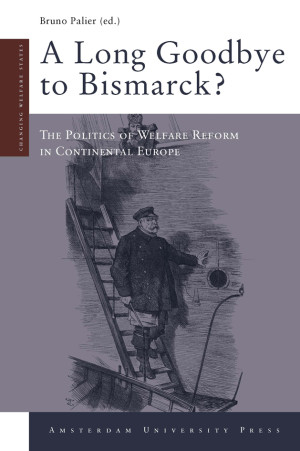AANGEPAST DOOR ANNE:
Dit boek geeft een uitgebreid overzicht van alle sociale hervormingen die de afgelopen dertig jaar in Europa zijn doorgevoerd. Aan bod komen Duitsland, Oostenrijk, Frankrijk, België, Nederland, Spanje, Italië, Zwitserland, Tsjechië, Hongarije, Polen en Slowakije. Bruno Palier toont aan dat al deze landen vergaande hervormingen hebben doorgevoerd in hun zorgstelsel. De oudere structuren, gebaseerd op de eerste sociale zorgstelsels als die onder Bismarck, voldoen niet meer aan de hedendaagse maatschappelijke behoeften. Zo is met de emancipatie van werknemers de hiërarchische structuur veranderd en is de man niet langer vanzelfsprekend de kostwinner van het gezin. Tegenwoordig hebben veel landen een duaal systeem dat onderscheid maakt tussen bescherming van goedfunctionerende burgers en de ondersteuning en motivatie van ‘atypische’ deelnemers aan de samenleving.
Bruno Palier is onderzoeker aan de Fondation nationale des sciences politiques in Parijs en wetenschappelijk coördinator van de European Network of Excellence, Reconciling Work and Welfare in Europe (RECWOWE).
During the 2000s, all continental European countries implemented important structural reforms of their welfare systems (a shift to multi-pillar pension systems, activation, competition in health insurance and care policies outside the family). Even though the changes only became fully apparent over the past decade, this book shows that they must be understood as the culmination of a longer reform trajectory. This book is devoted to the detailed analysis of this reform trajectory. Taken together, the reforms have contributed to a reorganisation of the Bismarckian welfare systems as a whole: they have lost their encompassing capacities, partly turned to activation and employment-friendliness, and weakened the strongest elements of their male breadwinner bias. Instead of the emergence of new hybrid welfare systems, the book concludes that Continental Europe witnessed the development of dual welfare systems that differentiate between the protection of the core workers and the activation of the “atypical” (low skilled) ones, and thus contribute to the dualisation of Continental European societies.

